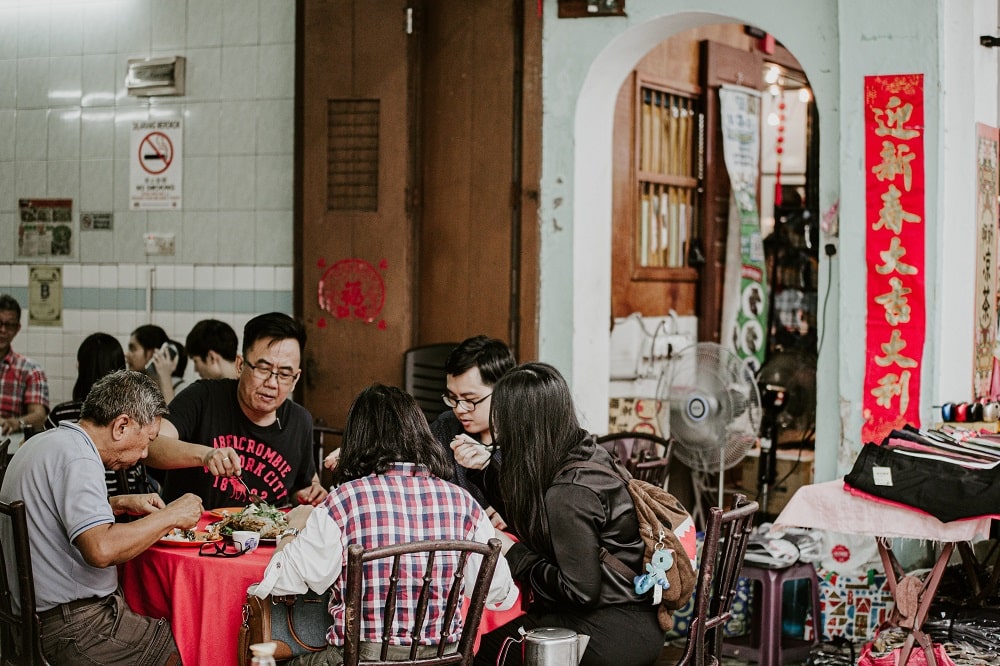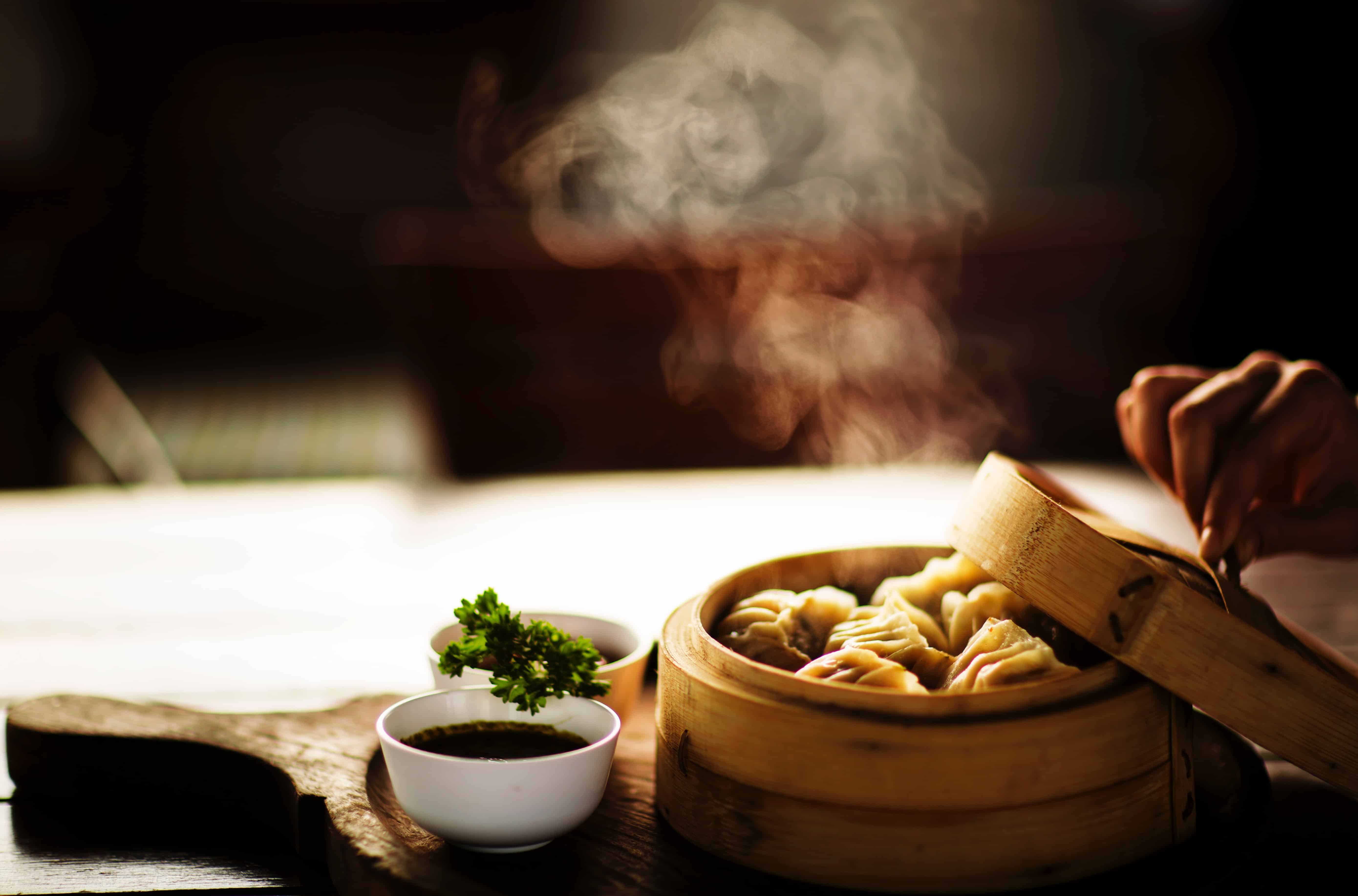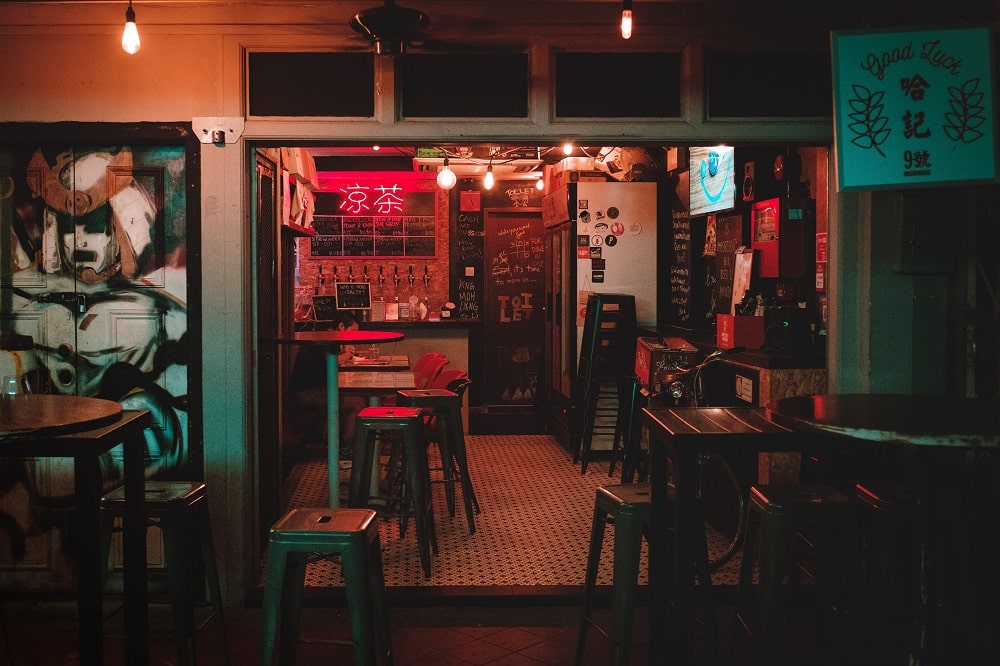60+ Essential Chinese Restaurant Phrases for Eating Out in China

In my second week of learning Chinese, my teacher taught us the phrase 你吃饭了吗? (nǐ chī fàn le ma). This literally means, “Have you eaten?” but it’s often used the way “How are you?” is used in English.
Providing food is a major way of showing concern for people in Chinese culture, as it is in many cultures. So naturally, asking about when someone has eaten expresses your concern for their well-being.
And that’s just the beginning when it comes to talking about food and eating in Chinese—take a look at the guide below to learn important restaurant phrases you’ll need to use in China.
Download: This blog post is available as a convenient and portable PDF that you can take anywhere. Click here to get a copy. (Download)
Chinese Ordering Practices
When ordering, a waiter will ask 还有呢 (hái yǒu ne — and; In addition) repeatedly. Hearing a slightly demanding “and?” after every item may get old, but they do it to make sure they don’t miss anything.
Phrases for Ordering in Chinese
- 一碗 (yī wǎn) — A bowl of
- 一盘 (yī pán) — A plate of
- 炸 (zhá) — Fried
- 炒 (chǎo) — Stir-fried
- 煮 (zhǔ) — Boiled
- 蒸 (zhēng) — Steamed
- 烤 (kǎo) — Roasted
- 焖 (mèn) — Braised
- 三分熟 (sān fēn shú) — Rare
- 四分熟 (sì fēn shú) — Medium rare
- 五分熟 (wǔ fēn shú) — Medium
- 七分熟 (qī fēn shú) — Medium well
- 全熟 (quán shú) — Well done
- 面条 (miàn tiáo) — Flour noodles
- 米线 (mǐ xiàn) — Rice noodles
- 有没有…
(yǒu méi yǒu…) — Do you have…
- 牛肉 (niú ròu) — Beef
- 鸡肉 (jī ròu) — Chicken
- 羊肉 (yáng ròu) — Lamb
- 鸭肉 (yā ròu) — Duck
- 猪肉 (zhū) — Pork
- 茄子 (qié zi) — Eggplant
- 番茄 (fānqié) — Tomato
- 葱 (cōng) — Green onions
- 豆腐 (dòu fu) — Tofu
- 土豆 (tǔ dòu) — Potato
- 白菜 (bái cài) — Chinese cabbage
- 饺子 (jiǎo zi) — Dumplings
- 包子 (bāo zi) — Steamed buns
- 米饭 (mǐ fàn) — Rice
- 炒饭 (chǎo fàn) — Fried rice
- 北京烤鸭 (Běijīng kǎo yā) — Peking duck, called Beijing Roast Duck in Chinese
The Most Useful Chinese Restaurant Phrases
Now that you’re well-informed about Chinese ordering practices, here are some more restaurant phrases that will come in handy:
- 欢迎 (huān yíng) — Welcome
- 几位 (jǐ wèi) — How many people?
- 等一下 (děng yī xià) — Just a moment
- 菜单 (cài dān) — Menu
- ___ 杯水 (___ bēi shǔi) — May we have ___ glasses of water please?
- 一壶茶 (yī hú chá) — May we have a pot of tea please?
- 红茶 (hóng chá) — Black tea. Although this is literally translated “red tea,” it refers to what Westerners know as black tea.
- 黑茶 (hēi chá) — Chinese black tea. Chinese black tea is very dark and quite strong. It’s basically the tea version of coffee.
- 绿茶 (lǜ chá) — Green tea
- 可以加热水 (kě yǐ jiā rè shǔi) — Please add hot water
- 不用味精 (bú yòng wēi jìng) — Please don’t use MSG. This is becoming a hotter topic in China, so don’t be afraid to speak up if it matters to you.
- 我要… (wǒ yào…) — I would like…
- 有叉子吗 (yǒu chā zi ma) — May I have a fork please? – Nothing personal… I know you can use chopsticks… but just in case…
- 有筷子吗 (yǒu kuài zi ma) — Do you have chopsticks?
- 有勺子吗 (yǒu shǎo zi ma) — Do you have spoons?
- 买单 (mǎi dān) — May I have the bill?
- 可以刷卡吗 (kě yǐ shuā kǎ ma) — Do you accept cards?
- 我不能吃… (wǒ bù néng chī…)— I can’t eat… Use this phrase when referring to allergies and intolerances.
Phrases for the Chinese Fanguan
A 饭馆 (fàn guǎn) is a hole-in-the-wall restaurant which is much less formal than a regular restaurant.
They provide toilet paper as napkins for free. All plates are individual. Patrons are usually in and out, so the tables are freed up quicker for other people. You pay first, then get your food. At buffets there are no lines, so you eat based on your insistence for food.
Here are a couple 饭馆 phrases that will come in handy:
多一点
(duō yī diǎn) — A bit more
— Can you give me a little more please? Use this phrase when they’re putting your plate together; this isn’t rude, considering they want you to be happy
__ 荤 __ 素 (__ hūn ___ sù) — ___ meats and __ vegetables
The above phrase will come in handy as buffets often offer one meat and three vegetable choices or two meats and two vegetable choices
带走 (dài zǒu) — Take away
Phrases for the Chinese Shaokao
烧烤 (shāo kǎo), or Chinese barbecue, is a popular street food, especially in night markets. They are often family-owned and independently run. You pay whoever is cooking. Someone will be there to answer any questions you have, but you hand-select your skewers and give them to the cook. You may be given a basket to load your skewers into if you’ve chosen that many.
If the 烧烤 place is outside of a restaurant, you’ll likely have to pay at the register and hand your receipt to the cook so he knows what you paid for.
Here are some 烧烤 phrases that will come in handy:
- 串 (chuàn) — Skewers
- 少油 (shǎo yóu) — Not too much oil. Some barbecue places tend to use a lot of oil, especially if they cook on a hot plate
- 辣/不辣 (là/bú là) — Spicy/not spicy
- 做长 一点 (zuò cháng yī diǎn) — Please cook it a little more. The food is usually cooked well, but if you want it cooked a little more, don’t be afraid to ask.
Chinese Restaurant Etiquette Phrases
A 餐厅 (cān tīng) is a larger-scale or fine dining restaurant, and it doesn’t differ much from a nicer restaurant in a Western country. The waiters will be well-dressed, a hostess will welcome you, complimentary tea will be provided and the lighting and decor will show that the owners splashed some cash. That’s how it looks, but it will be a full-on, Chinese-style food experience. Here, we’ll give you a few pointers to help you adjust to the environment.
This information is mainly for mainland China, so just keep in mind that different Mandarin-speaking regions may have different restaurant etiquette.
Napkins. When you arrive at your table, you’ll likely see a package of paper napkins. This isn’t complimentary. Most Chinese people carry a packet of tissues with them because bathrooms aren’t stocked with toilet paper. If you open the package, you’ll have to pay for it.
Getting Your Waiter’s Attention. If you need the waiter’s attention, yell 服务员 (fú wù yuán) — Waiter. When I say “yell,” I mean yell it. If others hear you calling for the waiter but the waiter can’t hear it himself, it’ll look like he’s not responding to you. Waiters appreciate the yelling because they feel they should be the first ones to know you need something.
When traveling outside mainland China, look around first. If the restaurant isn’t loud or busy, raising your hand may do the trick. Use your best judgment!
Water. Soup is usually the liquid for the meal, and alcohol is often ordered as well. If you want water, you’ll likely have to request it.
The (Vast) Number of Plates. If you’re ordering, the dishes ordered should outnumber the people eating with you. You’re welcome to offer others their choice, but if everyone chooses and there still aren’t more dishes than people, you need to come up with the rest on your own.
Bones. Chinese meat dishes have tons of tiny little bones. In Chinese food etiquette, these are set aside in a bowl provided by the restaurant. If there’s no bowl, you put your bones directly on the table next to your plate.
Tips. Tipping the waiter isn’t a common practice in China. Your bill won’t include gratuity since the waiter is “doing his job.” If you still want to tip the waiter, you can hand him the tip and say 小费 (xiǎo fèi) — Gratuity, literally meaning “small fee.” Even though it’s not expected, they’ll appreciate it.
Doggie Bags. Taking a doggie bag isn’t a given, so see if other guests do it first. Not all restaurants are prepared to make doggie bags, so if you ask and they don’t have containers, they’ll feel like they didn’t do their job. If they do have containers, you’ll have to box your food yourself, and you may have to pay for the containers.
Argue for the Bill. The argument shows gratitude for the other person’s kindness. Immediately accepting someone’s offer to pay is imposing. Letting someone else win the argument when you’re expected to pay is rude.
During the argument, don’t be surprised if someone waves their hand in your face while they discourage you from paying. If everyone knows you’re supposed to pay, stand your ground and don’t let them win. (Side note: If you’re waiting for a table and you see a group of people start arguing and waving their hands in each other’s faces, their table will be clear soon.)
Splitting the Bill. The typical practice is that one person in the group pays for everyone, and the next time that same group gets together, it will be someone else’s turn to pay. However, splitting the bill—referred to as “AA”—is a growing practice.
To make sure you’re using these phrases correctly, you can also look them up in a dictionary for added context. For example, FluentU has a video-based dictionary that allows you to see vocabulary used in daily media.
FluentU takes authentic videos—like music videos, movie trailers, news and inspiring talks—and turns them into personalized language learning lessons.
You can try FluentU for free for 2 weeks. Check out the website or download the iOS app or Android app.
P.S. Click here to take advantage of our current sale! (Expires at the end of this month.)
If you know how people feed themselves, you open yourself to a large part of their culture. If you share a meal with them, you’ll discover how deep culture can run.
Dig in.
Download: This blog post is available as a convenient and portable PDF that you can take anywhere. Click here to get a copy. (Download)
And One More Thing...
If you want to continue learning Chinese with interactive and authentic Chinese content, then you'll love FluentU.
FluentU naturally eases you into learning Chinese language. Native Chinese content comes within reach, and you'll learn Chinese as it's spoken in real life.
FluentU has a wide range of contemporary videos—like dramas, TV shows, commercials and music videos.
FluentU brings these native Chinese videos within reach via interactive captions. You can tap on any word to instantly look it up. All words have carefully written definitions and examples that will help you understand how a word is used. Tap to add words you'd like to review to a vocab list.
FluentU's Learn Mode turns every video into a language learning lesson. You can always swipe left or right to see more examples for the word you're learning.
The best part is that FluentU always keeps track of your vocabulary. It customizes quizzes to focus on areas that need attention and reminds you when it’s time to review what you’ve learned. You have a 100% personalized experience.
Start using the FluentU website on your computer or tablet or, better yet, download the FluentU app from the iTunes or Google Play store. Click here to take advantage of our current sale! (Expires at the end of this month.)














